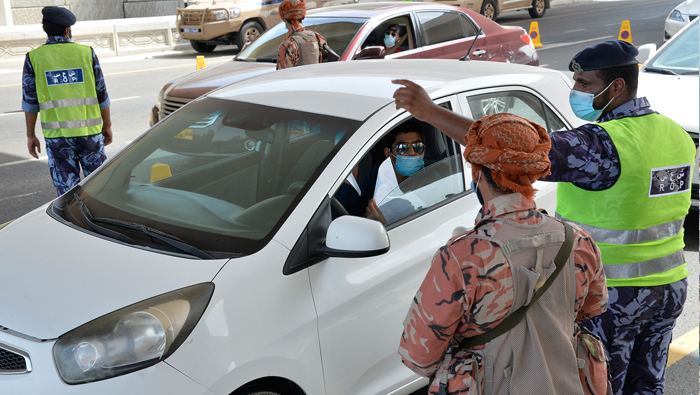
Muscat: Police patrols on roads have come across very few people violating the rules of the lockdown which was instituted to reduce the spread of COVID-19 in Oman, a senior officer at the Royal Oman Police has said.
Under the rules of the lockdown, which began on 25 July, and is expected to run until 8 August, people are not allowed to leave their homes after 7pm, and are not allowed to travel between governorates.
Referring to incidents of violators of the lockdown being seen after it came into effect, an official from the Royal Oman Police said, “There are very few cases, and most of these people thought they could go out, but there were no excuses for them, because we had already announced this through the media and through our social media accounts.
“People know that there are very few groups of our society or community that can move during the lockdown period, and this is why we have had very few offenders,” he added. “We have noticed that over the last few days or the last couple of nights, the people are highly aware of their responsibilities and thankfully, we have not found any who’ve violated any of the restrictions or the orders of the Supreme Committee.”
Violators of the lockdown will be required to pay a fine of OMR100. Should people refuse to comply with ROP directives even after being caught by them, their case will be referred to the country’s Public Prosecution service.
Locals and expats who go to the officers at the checkpoints on the access roads between governorates, and make excuses to attempt to pass through them, will be considered to have violated the rules.
“At the checkpoints between the governorates, we have not noticed any crowding, as was the case during the previous lockdown, because people know that the control checkpoints have no authority to allow anyone to cross the checkpoints,” added the ROP officer.
“Those who go to these control checkpoints must have prior permission to cross, otherwise, they will not be allowed to cross them,” he added. “People also have not caused any crowding at these checkpoints.”
At night, only vehicles that perform essential services are allowed to be out on the roads. Police units, ambulances and civil defence vehicles such are fire engines are allowed to be out on the roads, as are service vehicles that maintain electricity and water connections. Vehicles that transport waste and water tankers can also go out onto the roads.
Locals and expats who are leaving Oman and are required to travel to the airports after dark can also venture out at night, but need to show proof of their travel in the form of ticket bookings and travel documents. Ali Al Barwani, the former CEO of the Oman Road Safety Association, said such control measures were necessary at a time like this to control the spread of the disease in Oman.
“The ROP have been doing a good job and the commitment from people has been rather high as well,” he explained. “That is what we’ve been observing in the Sultanate. We support the decision, because the ultimate objective of this is our health. COVID-19 is a global problem, and we are looking forward to the results of this lockdown in about two weeks, which we hope will lead to a minimum number of cases.
“This is quite new for people, in that they can go nowhere after 7pm: they cannot get into their cars, they cannot go out, and they cannot visit anyone,” added Al Barwani. “People needed the first few days to try and adapt to the situation, but they are committed to the rules and regulations.”